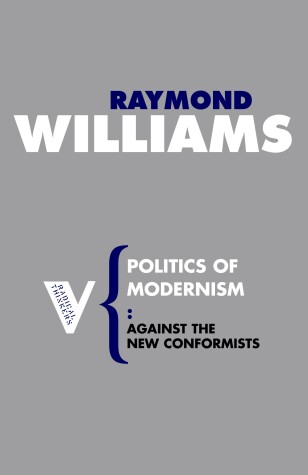Verso Classics
2 total works
Raymond Williams was the founder of an approach that was to become known as "cultural materialism." Yet, Williams's method was always open-ended and fluid, and this volume collects toegther his most significant work from over a 25-year period in which he wrestled with the concepts of materialism and culture and their interrelationship. Aside from his more directly theoretical texts, however, case-studies of theatrical naturalism, the Bloomsbury Group, advertising, science fiction, and the Welsh novel are also included as illlustrations of the method at work. Finally, Williams's identity as an active socialist, rather than simply an academic, is captured by two unambiguously political pieces on the past, present and future of Marxism.
Considered to be the founding father of British cultural theory, Williams was concerned throughout his life to apply a materialist and socialist analysis to all forms of culture, defined generously and inclusively as "structures of feeling." In this major work, Williams applies himself to the problem of modernism. Rejecting stereotypes and simplifications, he is especially preoccupied with the ambivalent relationship between revolutionary socialist politics and the artistic avant-garde. Judiciously assessing the strengths and weaknesses of the modernist project, Williams shifts the framework of discussion from merely formal analysis of artistic techniques to one which grounds these cultural expressions in particular social formations. Animating the whole book is the question which Williams poses and brings us significantly closer to answering: namely, what does it mean to develop a cultural analysis that goes "beyond the modern" and yet avoids the trap of postmodernism's "new conformism"?

